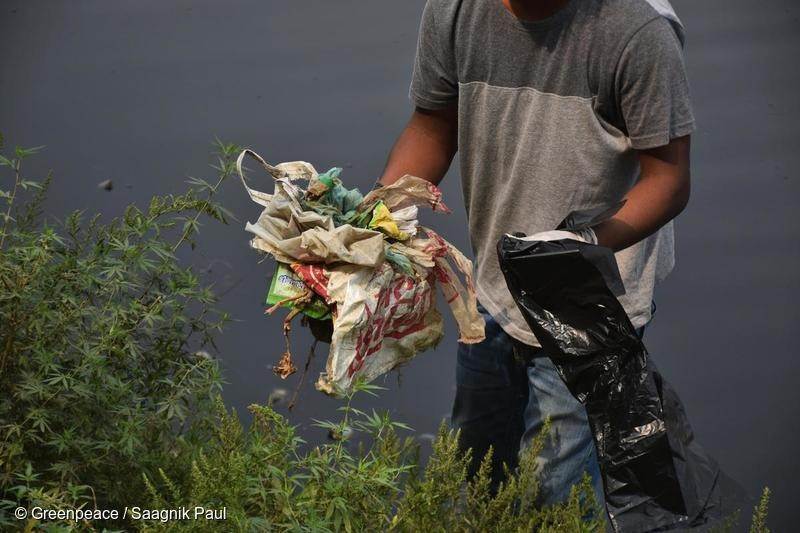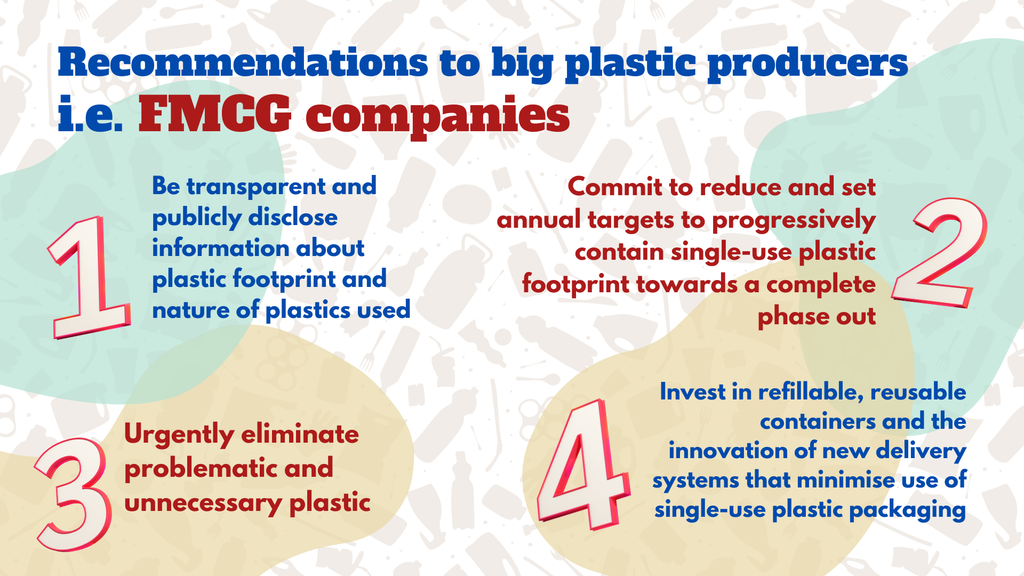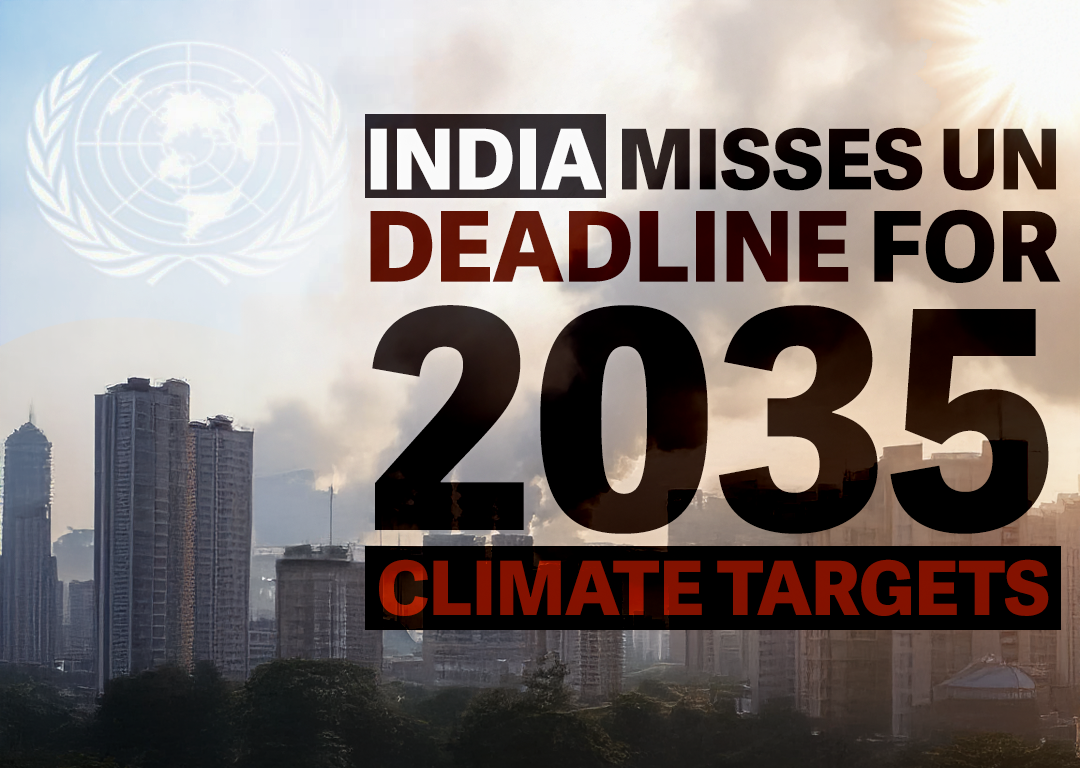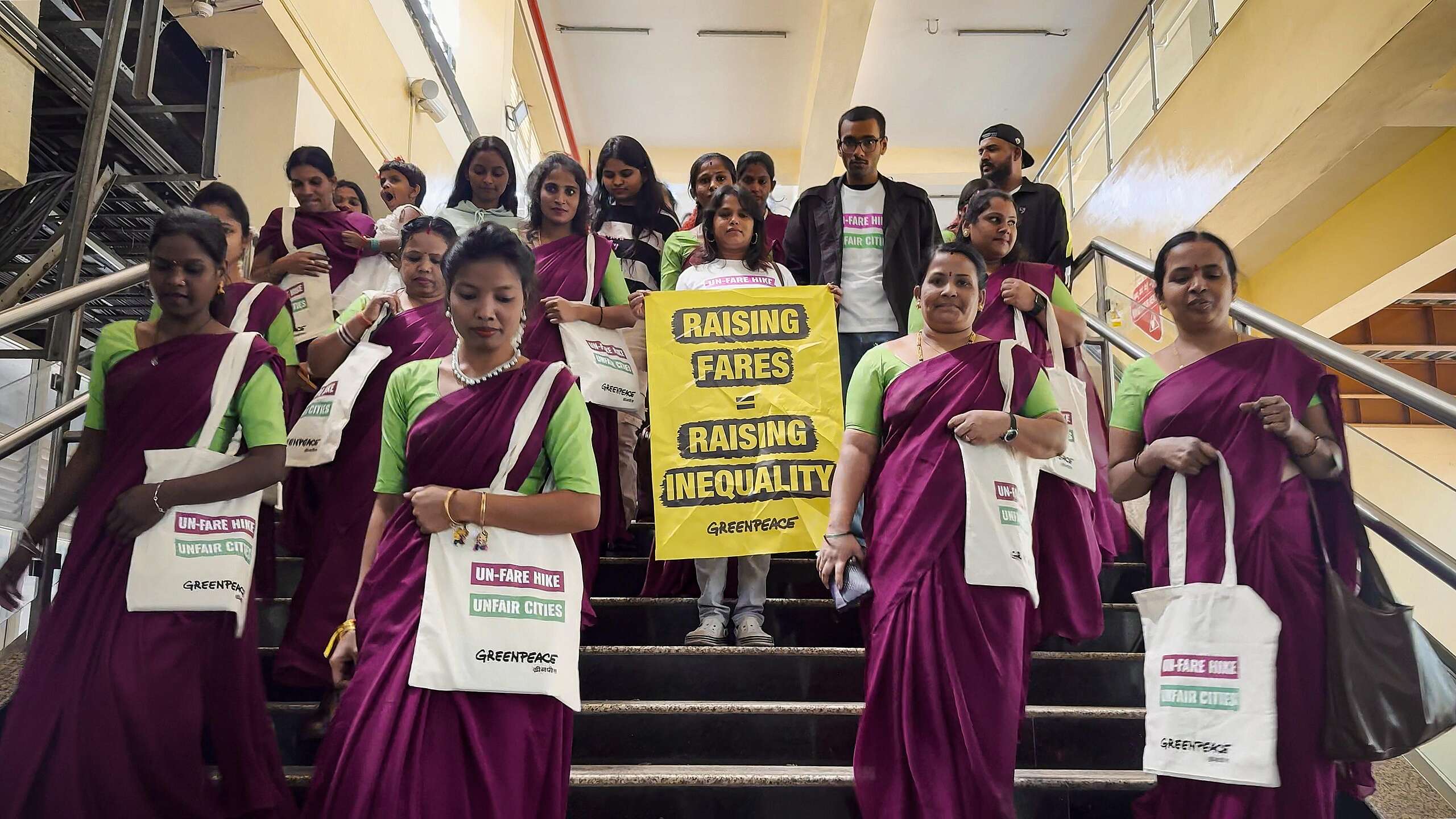
On July 1, 2022, the Indian government’s ban on selected single-use plastics came into effect. The banned plastic products include plastic cutlery, earbuds with plastic sticks, plastic flags, candy sticks, ice cream sticks, and decorative thermocol, among other items with ‘low utility and high littering potential’. While cracking down on disposable plastics is a step in the right direction, is a ban of this nature going to address the problem of plastic pollution?
Over the past decade, successive Indian governments have been working towards curtailing the use of single-use plastics through various policy measures. From bans to waste-to-energy plants, multiple strategies have been devised to tackle the ginormous plastic menace, but have had little to no impact on ground.
This is because plastic is not a waste problem, but is a consumption problem.
According to the Central Pollution Control Board, India produced about 3.4 million tons of plastic in 2019-20. However, the real figures might be far higher. Plastindia Foundation—a major body of associations, organisations and institutions connected with plastics—suggests that India consumed 16.5 million tons of plastic in 2017-18 alone, highlighting a conspicuous divide between consumption and wastage. Currently, of the total plastic waste produced in the country, 60% is being ‘recycled’— most often converted into lower quality products such as pellets, granules or flakes—only, at best, delaying its entry into our soil, oceans and the food system. Additionally, the ban focusses on a few categories of single-use plastics, conveniently excluding the major plastic generators in the form of FMCG companies. FMCG or Fast Moving Consumer Goods companies, that manufacture our packaged chips, snacks, biscuits, soft-drinks, packaged dairy, packaged water, cosmetics, over-the-counter drugs, toothpaste, toiletries, cleaning liquids etc have been in repeated audits found to be the biggest generators of plastic waste. In fact, one waste audit found that nearly 30% of this plastic waste is multi-layered and cannot be commercially recycled. Then there is the fast fashion industry that has reinvented cheap, plastic fabric with greenwashing terminologies like vegan leather, crease-free and more. Studies show that nearly 60% of fabric fibres globally manufactured are plastic. With every purchase and every wash micro plastic fibres are getting washed away into our water bodies. The urgent need is to hold the big producers of plastic accountable for their products and bring in policies that will force them to switch to natural packaging material. The big producers i.e. FMCG industry must take responsibility for the plastic problem and re-evaluate its dependency on single-use plastics. Companies must go beyond pledges and greenwashing tactics to improve recycling and commit to rapidly reduce and phase out their use of single-use plastic packaging, year on year.

Citizens too have a big role in transitioning towards alternative products and sustainable practices. Buying lesser, better and more natural products is key to changing the course of the hyper consumerist market that we live in today. Within our homes, segregating at source gives us a sense of the waste that we are generating on an individual level too. We will need to be deeply conscious about our habituated consumption patterns while moving away from corporations that continue to pollute our environment, and consequently, affect our health.
Within this discourse about plastic waste management, a crucial—and often unacknowledged—link are informal waste workers. They play a critical role in collecting and segregating recyclable plastic waste, ensuring environmental safety despite the dismal compensation and health risks. In Pune, for example, women-led self-employed waste workers extend door-to-door collection services, especially to the city’s impoverished areas, enabling greater recycling capacity and reducing ecological damage. In this journey away from single-use plastic, there is a need for formal mechanisms to ensure waste workers are provided with just livelihood transitions. Similarly, small and medium plastic manufacturing units, which employ more than 4 million workers, will also require supportive mechanisms to successfully transition away from plastic production. Governments should also support small/medium companies and neighbourhood initiatives to create places where sustainable, second-hand, reusable, and repairable consumption is encouraged, such as packaging-free markets and stores, swapping platforms, repair cafes etc.
For this ban and future policies to be successful, we need to bring forth a huge shift in our behaviours and lifestyles to create the desired impact. Alternative products already exist—many citizens are living sustainably with minimal environmental consequences. Governments and corporations have a lot of work to do, and workers in the waste ecosystem need to be provided with the right support, before India can truly transition away from single-use plastics. The scale of the plastic production and waste problem is immense, and the only way to combat it is to act as a community.
Together #towardsbetter.



